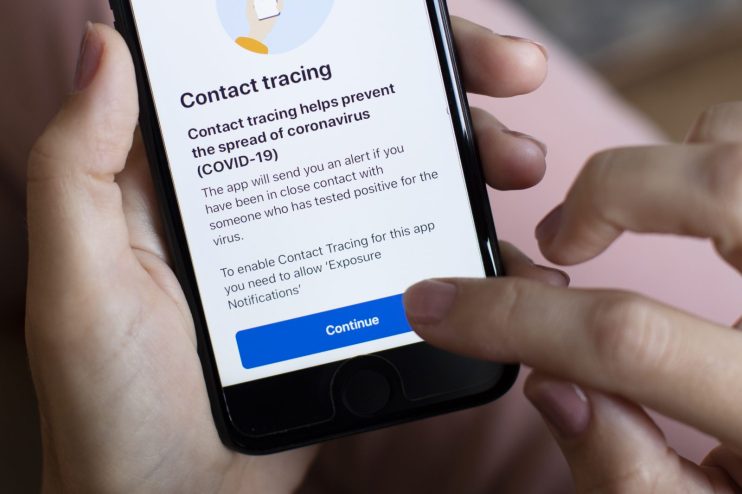Two-thirds of London boroughs launch their own local contact tracing systems

Almost two-thirds of London boroughs have launched their own contact tracing platforms as confidence in the government’s Track and Trace app continues to plummet.
Redbridge and Hammersmith and Fulham today joined a list of 21 out of 32 London boroughs that have snubbed the national system in favour of localised approaches to tackling the virus.
It comes after official figures released today showed that just 60.5 per cent of people who came into contact with the virus in the week to 11 November were reached by the NHS Track and Trace app.
The figure meant the government app failed to reach 123,000 positive coronavirus cases, and came close to the record low of 59.6 per cent seen at the end of last month.
The poor performance has forced the bulk of London boroughs to pick up the slack by deploying council leaders to call local residents who may have come into contact with the virus.
Some boroughs such as Southwark and Kingston upon Thames have recruited door-knockers to check up on residents forced to self-isolate.
Waltham Forest, which launched its own local service last month, has pushed its contact tracing success rate up from 70 per cent using the government app to 87 per cent through its council-led system.
Hounslow councillor Candice Atterton, who oversaw the southwest borough’s contact tracing app earlier this month, said: “Before now, a lack of local authority involvement has meant significant gaps in the scheme, and government recognition of the importance of local connections and expertise is overdue.”
Several others, including Camden and Lewisham, intend to depart from the national system but currently lack the funding to do so.
London boroughs with their own local contact tracing system:
- Ealing
- Enfield
- Greenwich
- Hackney
- Hammersmith and Fulham
- Harrow
- Havering
- Hillingdon
- Hounslow
- Kensington and Chelsea
- Kingston upon Thames
- Lambeth
- Merton
- Newham
- Redbridge
- Richmond upon Thames
- Southwark
- Tower Hamlets
- Waltham Forest
- Wandsworth
- Westminster
It comes as the government faces mounting pressure to sack Track and Trace chief Baroness Dido Harding, after the programme failed to deter a second wave of infections across the country.
The Treasury has allocated around £12bn to her scheme so far — equivalent to what the government normally spends on nursery and university education each year.
The system has been beleaguered with hiccups since its inception six months ago. A spreadsheet error last month meant almost 16,000 positive cases were missed and added to the nation’s coronavirus tally weeks later.
The government faced further backlash last month after it emerged management consultants were being paid the equivalent of £1.5m salaries to work on the Test and Trace programme.
Documents leaked to Sky News this afternoon showed Test and Trace bosses are set to roll out plans to “rebuild public trust” by “resetting” relationships with local councils.
The World Health Organisation (WHO) last month joined a chorus of experts urging the government to approach a more localised approach to track and trace.
David Nabarro, special Envoy of WHO’s director general told MPs in October that there was “no question that local is the only way” to get the virus under control.
A Department of Health and Social Care spokesman said: “NHS Test and Trace is breaking chains of transmission thanks to local and national teams working hand in glove — over 2m people who may otherwise have unknowingly spread coronavirus have been contacted and told to isolate.
“We are continuously seeking to improve the service, as well as our vital local relationships. There are now over 150 local contact tracing partnerships across the country with more to come, and we are going further by sending out hundreds of thousands of rapid lateral flow tests to local authorities across England.”